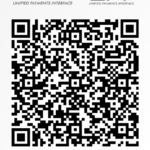Learning
These are the times of great advances in learning of Information and Communication technology. These are times for the humankind to feel proud of its success in exploring the secrets of nature. The criticality of man-nature relationship was never so well understood ad appreciated as at present. But knowledge is often put to wrong use, and that could be catastrophic on multiple occasions! The man-nature relationship is under severe threat, and one could witness the impact of socio-cultural and economic upheavals all around. Never before human intelligence and wisdom was at such a high pedestal as at present. Never before humanity was in such a danger when it’s very survival is at stake! Why are human beings, highly advanced, educated, enterprising, innovative and conscious of their obligations to future generations, unable to find ways and means to create a world full of peace, equity and equality for one and all? Instead, it is violence, war, exploitation, bigotry, fundamentalism, terrorism and insecurity all around! It is indeed interesting, if not ironical, that all of these problems have been created by educated, intelligent and advanced people! All human achievements are also an outcome of the pursuit of knowledge, creativity and curiosity of human beings. Is it not indeed tough and highly complicated to comprehend the contradictions in human approach, behavior and attitudes that one witnesses all? Is it a dark alley? How does one explore the mystery of human beings indulging in acts and manipulations that are injurious to the entire human race? The only ray of light in the spreading darkness could come from education, knowledge, wisdom and the inherent human ingenuity. It is rare global consensus that education must reach one and all, irrespective of any diversity or discrimination suffered earlier.
One must hasten to add that there are still certain sects and sections of people may still be there who oppose modern education. Significant success has been achieved in the expansion and extension of education during the last six-seven decades globally. In India one could safely say that now parents want good quality education for both boys and girls. Further, the attitude towards vocational courses and skill acquisition is also undergoing a positive change. The post-independence achievements of India in education could be scrutinized with objectivity only when due note is taken of the population increase of over three and half times Education of the future has before it an intimidating agenda that would require total commitment, sincerity and devotion right from the makers to the teachers in preparatory schools to give their best. The essential traits of personality development have to focus on value inculcation, nurturance and development. Growth and development are not only mechanical calculation and implementations. These require a sound moral, ethical and humanistic base.
Modern education systems have produced visionaries like Mahatma Gandh Martin Luther King Jr, Nelson Mandela, on one side and Hitler, Stalin, and Mao on the other! Similar contradictory examples could be cited from every period of history and the earlier systems of knowledge creation, transfer to generations ahead and its utilization for the human welfare. Every civilization accords greatest respect, honor and place to the learned, the teacher and others engaged sincerely in the pursuit of knowledge in the pursuit of knowledge. Policy decisions in the contemporary context are taken by well-educated people everywhere. One often wonders why global consensus eludes great minds on such critical areas as climate change, reduction of nuclear ‘young r weapons, or wiping out of the terrorists. Is it not the basic obligation of every human being to maintain the sensitive bond between man and nature?
Education systems are considered highly change resistant. This perception must change, b otherwise it would be impossible for any nation to keep pace with others in the global scenario. It is universally accepted that the education system of every country must be “rooted to culture and committed to progress’’ Unfortunately, India inherited a transplanted system of education at the time of independence. It continues with some minor changes here and there. It suffers from the total neglect of children being made aware of the traditional system of knowledge creation, utilization and transfer to generations ahead. In its stages this alien education system succeeded in convincing the educated class that everything Indian is inferior to the British and Western culture and knowledge, to emulate Western culture, traditions and practices became the ultimate goal of such people. They were deliberately kept unaware of even such glaring facts that Indian culture is an all-embracing culture, which respects all religions, considers them to be right paths to reach the ultimate truth, despises none, and visualizes divinity in every creation of the Almighty. One wonders why; even after seven decades; every Indian child should not know about it? Why should the policy of education not insist on strengthening the cultural roots of education? Further, it must be accepted by the education policies and the system that education, apart from its content and process, must also strengthen the fabric of social cohesion and religious amity. It should not hesitate to let children learn that different religions have common values and principles that have the potential to create a world of peace, without which inclusive growth and prosperity are impossible to achieve. There are certain differences, but these do not impact human relationships, particularly these do not come in the way of ‘learning to live together’, or ‘lifelong learning: Indian tradition of knowledge creation, utilization and dissemination is based on a dialogical tradition. The teacher and taught interact, raise questions, find answers. Unfortunately, such interactive opportunities are becoming a rare occurrence in majority of schools and institutions.
The content of this book is based upon informed discussions amongst teachers and students, amongst teachers, and also with experts. The author has also drawn extensively from his own institutional experiences in India and multifarious interactions at the international level. One finds a great commonality of issues and interests amongst developing nations, particularly from Asia and Africa. Several young nations are making efforts to fill in the gaps in ageing societies and avail the opportunities making the best use of the much-hyped ‘Golden period of demographic India being one of them is gradually realizing that not many benefits can really be harvested if the learning achievements remain poor right from elementary schools to professional institutions producing technical and management professionals. India has neglected skill development; working with hands’; right from the days of “Basic Education” of Mahatma Gandhi to the recommendations on Vocationalization of secondary education made by the Kothari Commission. India needs to evolve an education policy that would attempt an attitudinal transformation, leading to widespread social acceptance of skill acquisition, entrepreneurship and innovations, coupled with creativity and nurtured curiosity. The issue of resource mobilization shall deserve a very thoughtful policy that puts pressure on the State to manage higher inputs in education from its kitty and regulate the entry of businessmen with single-minded focus only on earning higher dividend. The teacher preparation institutions are in deplorable conditions and shall have to be overhauled urgently. These are the institutions that eventually determine the quality of professionals in every field. Their sanctity must be restored.
Most of the material included in the book was written during the period 2015-17. The main purpose is to invigorate informed debate not only among those directly connected with education system but also those concerned about the quality of education in India. He author has been benefitted in his personal learning by the field experiences and the views of teachers working in arduous conditions, tough terrains, and under conditions of deprivation and deficiency.
He also sincerely acknowledges the inputs from his students spread throughout the country and abroad. Each of the articles, before finalization, was read and incisively scrutinized by Professor Sarla Rajput. Her contribution is gracefully and gratefully; acknowledged. It would be a matter of great satisfaction if this volume could help in furthering dialogue and discussion on enhancing the quality and credibility of education in the country.
Prof. Jagmohan Singh Rajput
Padma Shri Awardee
India Representative on the Executive Board of the UNESCO
May 29 of 2018
The DYNAMICS Of INDIAN EDUCATION
J.S. Rajput

